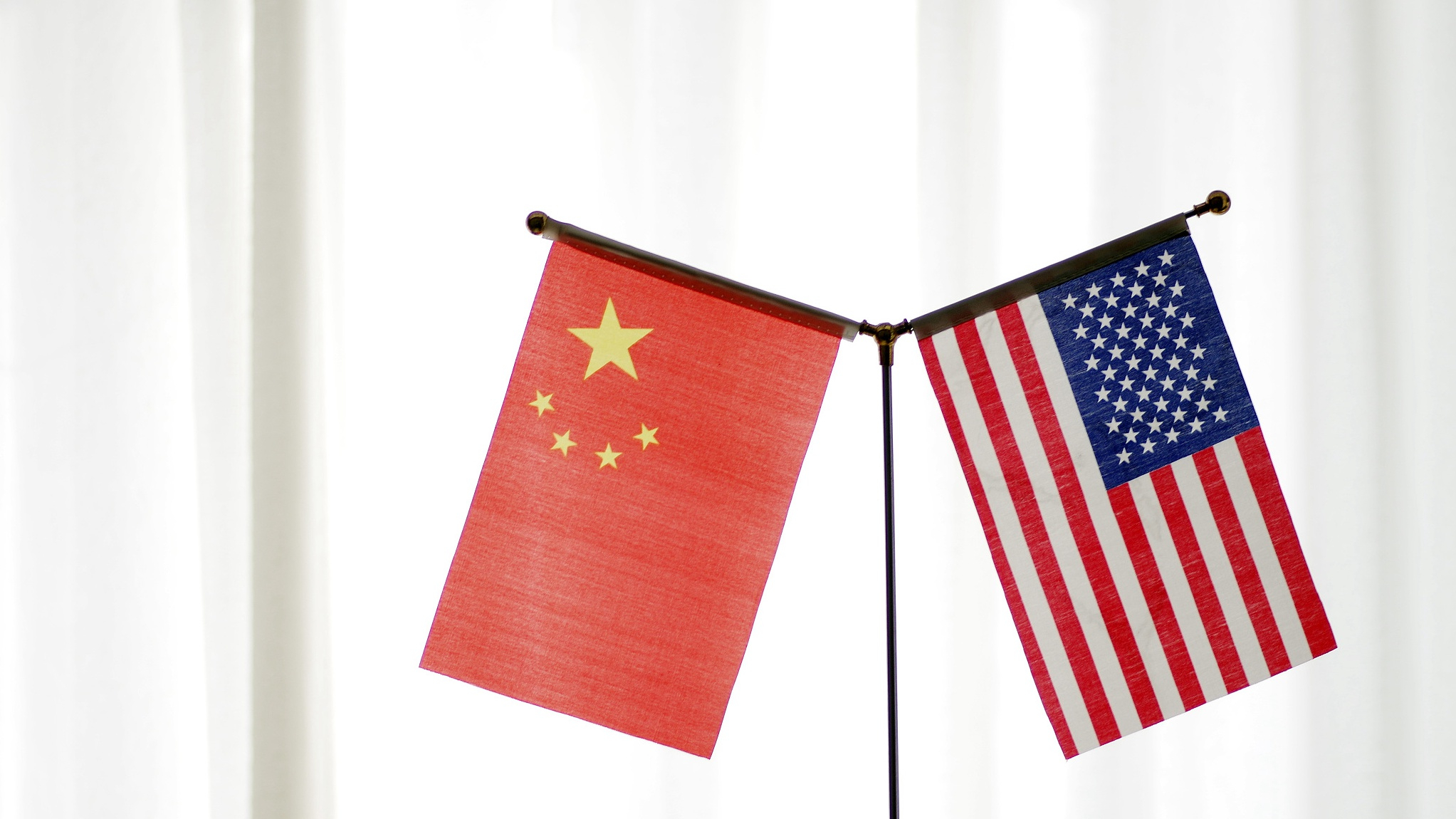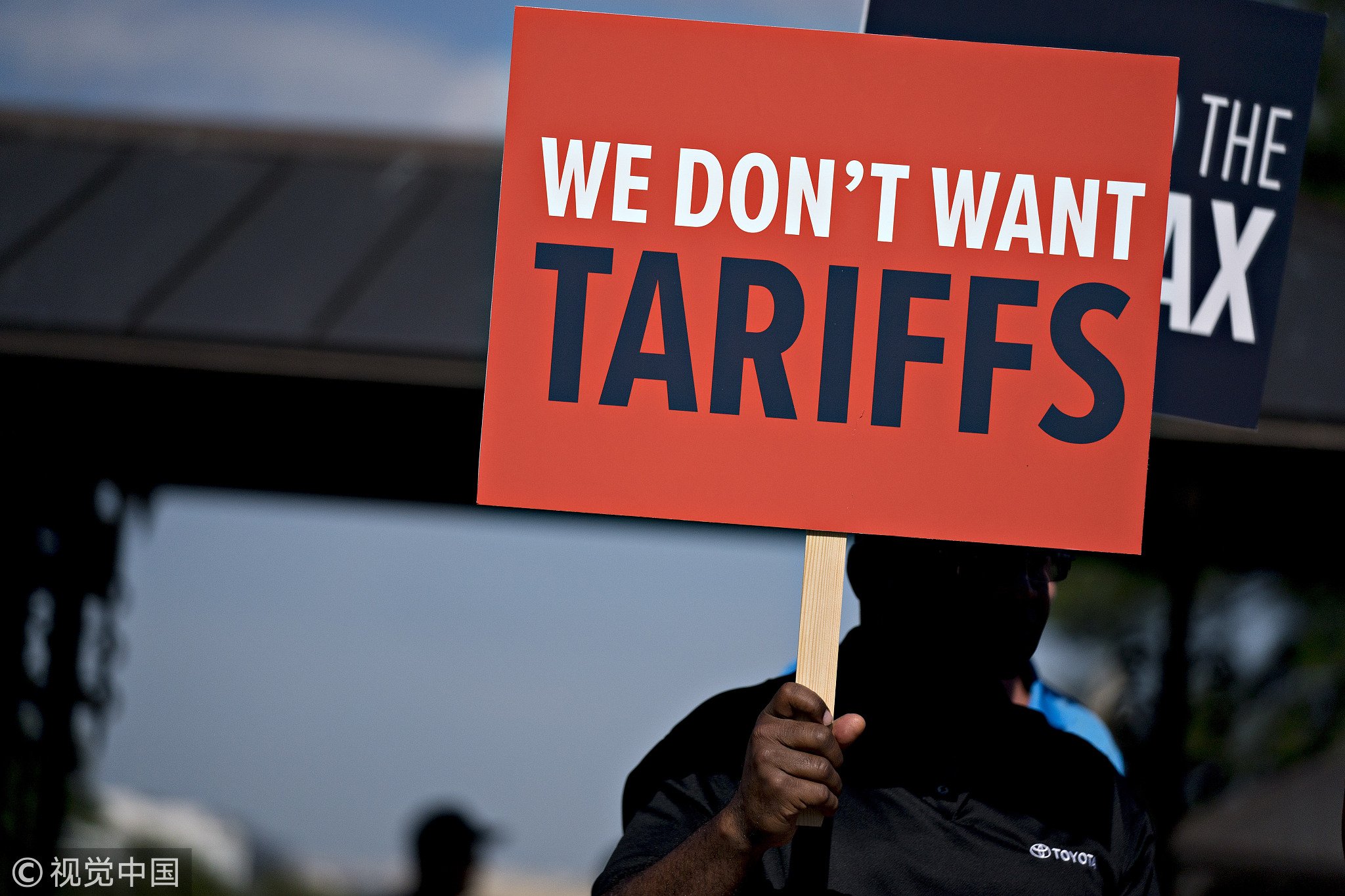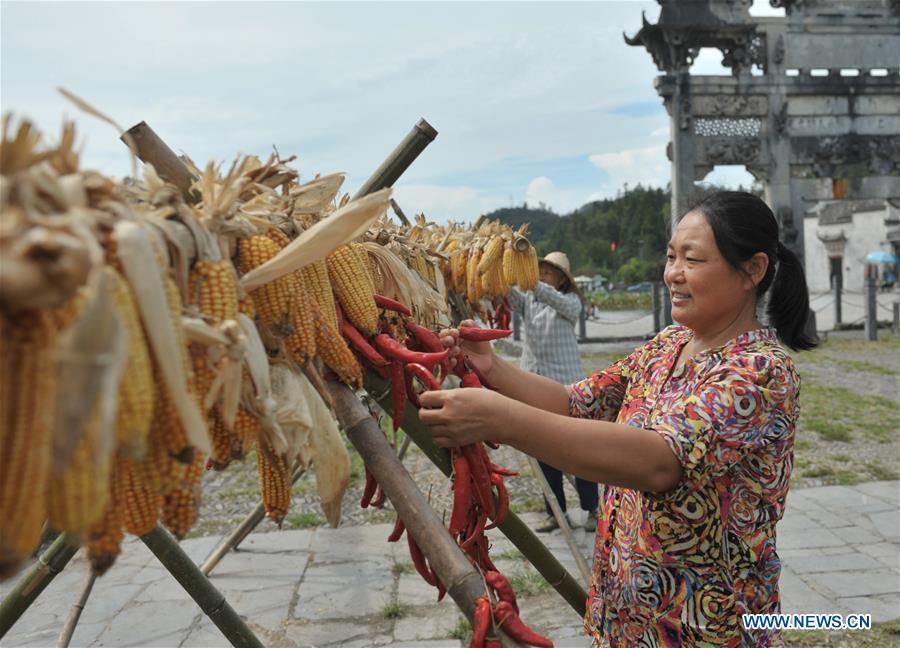
Opinions
10:25, 20-Sep-2018
The Heat: China-US trade dispute escalated to new height
Updated
10:25, 23-Sep-2018
CGTN's The Heat

The United States announced tariffs on another 200 billion dollars' worth of imports from China starting next week, which will go up to 25 percent in January from the present 10 percent.
Meanwhile, US President Donald Trump threatened to tax the remaining 267 billion dollars in imports if China fights back. Beijing said it had no choice but to retaliate against the US with tariffs on 60 billion US dollars' worth of its exported goods.
According to Geng Shuang, China's Foreign Ministry spokesperson, China took countermeasures to protect its legitimate rights and interests and safeguard the global order of free trade. Moreover, the US action has brought new uncertainty to the trade negotiations between the two sides.

An autoworker holds a sign during a news conference on Capitol Hill in Washington, DC, US, July 19, 2018. /VCG Photo.
An autoworker holds a sign during a news conference on Capitol Hill in Washington, DC, US, July 19, 2018. /VCG Photo.
Zhao Hai, an assistant research fellow at the Chinese Academy of Social Sciences, said that trade negotiation was pushed further because of the capricious actions by the Trump administration.
"Beijing is receiving the mixed message," said Zhao. "Trump seemed to reach out for a fair negotiation, but at the same time he was slapping tariffs from the back." Zhao believes that Trump feels satisfied with his trade policies and is highly likely to go along the road until all imports from China are taxed.
The escalating tariff war triggered more concerns among US economic experts. Saruhan Hatipoglu, former CEO of Business Environment Risk Intelligence, said that the trade war should not have gone this far.
00:56

As the 60 billion US dollars' worth of products that China imposed tariffs on made up the last part of all US exports to China, it is widely discussed whether China has run out of options. Hatipoglu gave his answer: Not yet.
"China is not tit-for-tat in exports, but they have other avenues, like currency," said Hatipoglu. "Remember what happened to the US stock market in August 2015 when Chinese currency lost value? And stock market gives a lot of emphasis to this president.”
Other than that, the US companies operating in the Chinese market are under potential threats once the trade war continued.
Unlike big companies like Apple, who have enough political influence to get some products out of the tariff list, the most hurt section consists of small to medium size companies who rely largely on intermediate goods from China.
The most controversial part of the present trade tactics by the Trump administration is not the increasing pressure on US consumers, but the belief that once the trade deficit is closed, the cozy lives of the American people also come to an end. Counterintuitive as it might sound, the logic is quite simple.
"We spend less on the products that we can't make cheaply, and more on American stuff that bears much more value and create more jobs," said Hatipoglu. "If you are a developed country, and your consumers are strong, you are going to have a trade deficit, period.”

A villager prepares corn ears for air-drying in Xidi Village of Yixian County, Anhui Province, China, September 19, 2018. /VCG Photo.
A villager prepares corn ears for air-drying in Xidi Village of Yixian County, Anhui Province, China, September 19, 2018. /VCG Photo.
Jack Ma, who recently stepped down as Alibaba's chairman, said that the trade war can last for decades to come. Amy Holmes, a political commentator and co-host of the public television show "In Principle," said that China has a much longer planning horizon both economically and politically than the US and that it can wait out the present administration.
Some opinions indicated that Trump, as a businessman, only wants to secure an economic victory rather than a political, long-term, comprehensive reassurance of the US dominance to the world.
Others have different views. Hatipoglu, for instance, said that the trade war kicked off a fundamental attitude change to Beijing's economy.
"It's not just about tariffs, it's about China 2025 and 2030," said Hatipoglu. "Three out of five largest start-ups are Chinese, and technology services in China grew 30 percent in the first quarter on a year-on-year basis. China has evolved from a low to an advanced manufacturing country, or even more, a high tech country."
However, the full speed development of China was based on its previous strong tie with the US and has not grown to be a real threat to the US economy.
"Growing a bigger pie with China, instead of competing for one small pie, is a better strategy for the US," said Zhao Hai.
Ryan Patel, a global business executive, believed that despite all the chaos going on, the two countries would eventually come to the negotiating table as a result of the deeply entrenched economic interests.
"There is going to be a deal, and the remaining problem is when," said Ryan. "Both countries won't back down until they get a win-win deal. But it's clear that the US and China need each other, and there is no plan B in that sense.
The Heat with Anand Naidoo is a 30-minute political talk show on CGTN. It airs weekdays at 7:00 a.m. BJT and 7:00 p.m. Eastern in the United States.
(If you want to contribute and have specific expertise, contact us at opinions@cgtn.com.)

SITEMAP
Copyright © 2018 CGTN. Beijing ICP prepared NO.16065310-3
Copyright © 2018 CGTN. Beijing ICP prepared NO.16065310-3